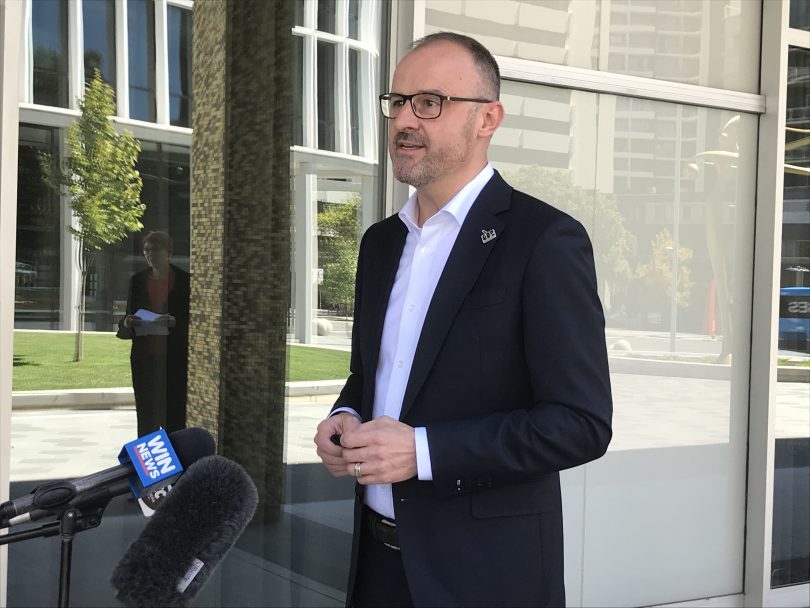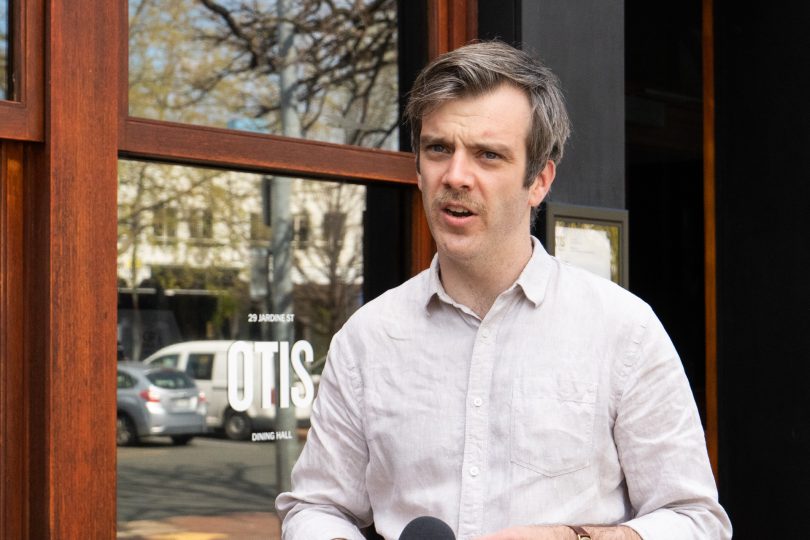
With the lifting of density restrictions by Chief Minister Andrew Barr, most Canberra public servants will be returning to the office. Photo: Lottie Twyford.
APS agencies are bringing staff back to their offices after the easing of COVID-19 restrictions in the ACT and NSW on Friday (18 February), particularly the scrapping of density limits.
Some agencies were quick off the mark with emails soon advising staff that the new arrangements would be announced this week.
The Australian Public Service Commission welcomed the easing of COVID restrictions, saying that, in principle, agency heads should seek to return employees to their usual place of work as soon as it is safe to do so.
It said decisions around working arrangements were up to individual agencies and would be tailored to their particular circumstances.
“Agency heads remain responsible for making COVID-related decisions affecting their workplaces, including working from home arrangements, while ensuring business continuity,” the Commission said.
My Public Sector
Public Service Minister Ben Morton also welcomed the changes, particularly to workplace density limits that had inhibited return to work arrangements across the Australian Public Service.
“The removal of these restrictions is welcome and will allow all Commonwealth public service agencies to respond by returning staff to their usual workplace,” he said.
But Mr Morton acknowledged that some staff would continue to work from home.
“We will see a greater use of flexible work arrangements into the future as agreed by employers, based on discussions between employers and employees on the productivity benefits of these arrangements,” he said.
Mr Morton also said the return to workplaces would be welcomed by the small and family businesses that operate near the vicinity of offices, something the Federal Government has consistently supported.

AHA ACT general manager Anthony Brierley: the new normal should work for the hospitality industry. Photo: Region Media.
Business groups were thrilled at the prospect of former and potential customers back in close proximity, although they also acknowledge that the pandemic has changed the way people work and not all will return.
Australian Hotels Association ACT general manager Anthony Brierley said business wouldn’t return to what it was pre-COVID, but the new normal should be workable for the hospitality industry.
He said that the changes, including lifting the ban on dancing, would be particularly good for businesses on a Friday and Saturday, but scrapping density limits would bring people back into workplaces and boost mid-week trade.
“Getting public servants back into some of these areas where businesses have set up on the back of that trade actually helps them from Monday morning through to Friday lunchtime,” Mr Brierley said.
“It’s not just us, it’s dry cleaners, newsagents, retail stores – a lot of business decisions have been made off the basis of that’s where the consumers were.”
The next step would be the end of the mask mandate when the ACT Government next reviews restrictions this week.
“It’s just not conducive to a genuine hospitality experience,” Mr Brierley said.
“You obviously can’t eat or drink when you’ve got a mask on, but hospitality venues are places of social interaction, and that interaction becomes a lot more difficult when three-quarters of your face is hidden.”
Mr Brierley said masks were not required in gyms and a range of other places because wearing them was not practical, and that should be the case for hospitality too.
“As soon as they can go, the better for everyone,” he said.
The public servants union called for staged, sensible and safe return to offices.
“What we do not want to see is APS agencies jumping the gun,” CPSU National Secretary Melissa Donnelly said.
“It is important to re-visit all COVID safety plans given new variants and recent outbreak, and it’s vital that agencies look at emerging issues around ventilation, testing and maintaining supports for vulnerable people.”
Ms Donnelly said staff had genuine concerns about how health and safety measures would be managed in APS workplaces, including social distancing. She said the return to the office should be done in consultation with employees and their union.
“The Commonwealth has an obligation to set an example for all employers about best practice for returning to work. It is critical that this is done properly to avoid a future wave of infections,” she said.


















